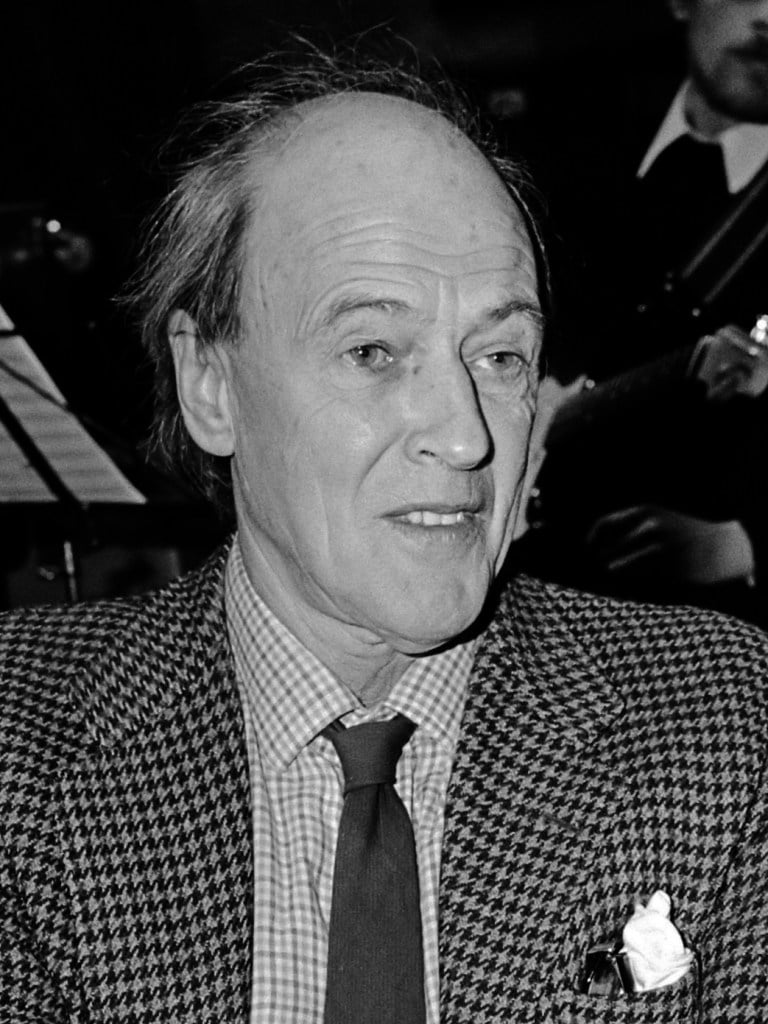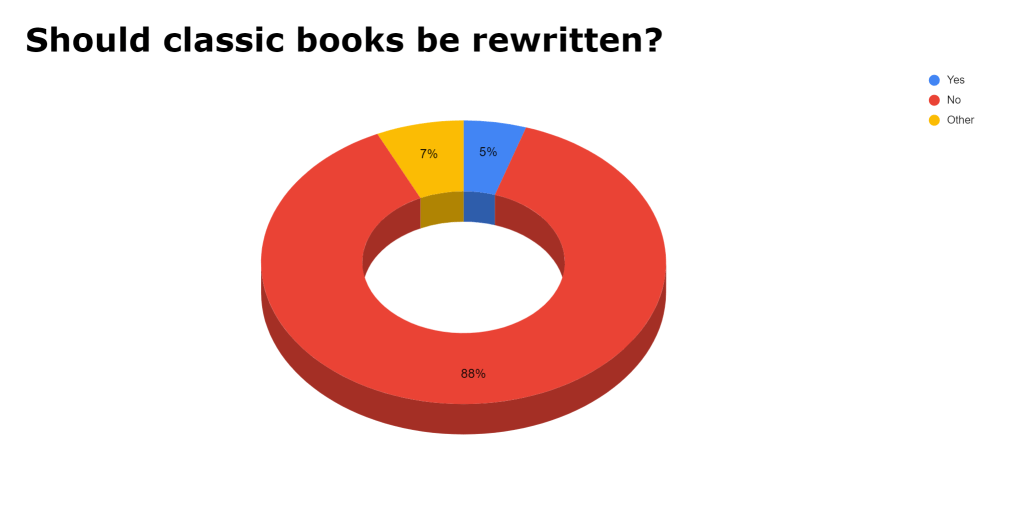In an era characterised by rapidly evolving social norms and heightened awareness of historical insensitivities, the question of whether books should be rewritten to align with modern sensibilities has become a contentious topic. As Jacqueline Wilson, the celebrated children’s author, stated, the argument rests on whether young readers lack a “sense of history,” necessitating adjustments in older texts. However, this stance has encountered resistance, especially when applied to revered adult classics. The ongoing saga of editing books like Roald Dahl’s works, ‘The Adventures of Huckleberry Finn’ by Mark Twain, and the James Bond series by Ian Fleming has raised concerns about historical accuracy, censorship, and pedagogical implications.
Why are classic books being rewritten?
Retroactive editing and the bowdlerisation debate
The act of retroactively editing previously published literature is not novel; history bears witness to such efforts. The term “bowdlerization,” named after English editor Thomas Bowdler, encapsulates this practice. Bowdler famously expurgated Shakespeare’s texts in an attempt to present family-friendly versions. However, this approach sparked debates about censorship and the integrity of classic literature. Similar issues resurface today as publishers grapple with finding a balance between safeguarding sensitive content and respecting the historical context of iconic works.
Sensitivity readers and the diversity dilemma
Modern publishers increasingly engage sensitivity readers to identify potentially offensive content in literature, particularly in children’s books. The utilisation of sensitivity readers, although championed for promoting diversity, remains a topic of contention. Critics argue that this practice veers into the territory of extreme censorship. Nonetheless, the presence of sensitivity readers could be seen as a proactive measure to address harmful representations and stereotypes in literature, fostering more inclusive narratives.


Rewritten classics: a double-edged sword
Examples of revised books like Roald Dahl’s ‘Charlie and The Chocolate Factory’ and Mark Twain’s ‘The Adventures of Huckleberry Finn’ highlight the challenges inherent in rewriting classic literature. While some argue that revisions can make these works more accessible and palatable for contemporary readers, others like Salman Rushdie vehemently oppose such measures. Rushdie, who survived a stabbing attack with life-changing injuries for his stance on free speech, reflected concerns about sanitising history and silencing uncomfortable truths within literature. In a note to PEN America’s Chief Executive Suzanne Nossel, Rushdie slammed the move as “insane”, adding: “Roald Dahl was a bigot and he never supported me, but really?”
Which classic books have been rewritten?
This does not include the author’s own edits which are justifiable. However, books that have been rewritten include:
- “Charlie and The Chocolate Factory,” “The Witches,” and other works by Roald Dahl. Publisher Puffin hired sensitivity readers to rewrite passages to edit out language deemed offensive including physical characteristics. In 1964 British author, Roald Dahl, published the first Charlie and the Chocolate Factory book in which the Oompa-Loompas are depicted as African Pygmy people. Yet, in 1971 Mel Stuart’s film Willy Wonka and the Chocolate Factory the Oompa-Loompas are portrayed as little people with orange skin and green hair. Dahl subsequently revised his 1973 version to white small men, according to Berkeley PhD student Chryl Corbin.
- The James Bond series by Ian Fleming. The famous works by author Ian Fleming, which were penned in the 1950s and 1960s, currently include racist language, hence it is being revised.
- The Doctor Doolittle series by Hugh Lofting. The original Dolittle texts were apparently marred by a sprinkling of gratuitous racial epithets. Hence it was revised with the main plot remaining intact.
Read: PEN America warns publishers: avoid banning books over moral outrage
- “The Adventures of Huckleberry Finn” by Mark Twain. Twain’s classic has been under scrutiny for the use of language since it was first published in 1884. In 2011, two racial epitaphs were traded for less offensive words.
- “Little Black Sambo” by Helen Bannerman. The original story of Little Black Sambo has never gone out of print since it was first published in 1899. But the controversy around racist interpretations of “Sambo” has been so intense that the book has disappeared from many bookshelves. In this case, there were huge amounts of racialised language used, as it was common during this period of time. In 2003, it was re-interpreted by Christopher Bing, bringing it in line with modern times.
- The Goosebump series by R. L. Stine. The writer claimed he was unaware of the fact that his publisher Scholastic Books would be revising his work in a Twitter post, in response to a statement that they would be editing the language.
- “And to Think That I Saw It on Mulberry Street”, “If I Ran the Zoo”, “McElligot’s Pool”, “On Beyond Zebra!”, “Scrambled Eggs Super!”, and “The Cat’s Quizzer” by Dr Seuss. Dr. Seuss Enterprises, the business that runs the estate, said it would retire these six books as they felt the books “portray people in ways that are hurtful and wrong.”
Books being rewritten: the importance of historical context
Experts from various fields have weighed in on the issue, providing a range of views that reflect the complexity of the matter. Morgan Gist MacDonald, the Founder and CEO of Paper Raven Books, told How To Be Books that instead of rewriting copyrighted works, modern authors could create new interpretations that reflect contemporary ideals. This approach, seen in works like Gregory Maguire’s “Wicked,” preserves the essence of the original while engaging with present-day principles. Having four children currently in school, she would prefer holding age-appropriate conversations on “why we hold the values that we do now”.
“I’m not one to obfuscate historical facts from my children, and I want them to be a part of the conversation around how and why we’re building a better world today.”
Morgan Gist MacDonald, PAPER Raven Books CEO AND Founder
In a similar vein, writer Rebecca Blanton argues against rewriting classic works. Blanton, who hosts the body liberation show Fat Chicks on Top and run the award-winning sex blog LoveLettersToAUnicorn.com, highlights that sanitising these books obscures historical realities, preventing valuable conversations about societal evolution. Having also taught in universities for a decade, she contends that alternative works, such as James Baldwin’s “The Fire Next Time” or Junot Díaz’s “The Brief Wondrous Life of Oscar Wao,” could be introduced to curricula to provide diverse perspectives without diluting the original classics. Like many others, she admits that “Huckleberry Finn” never spoke to her students, hence these alternatives may work better in terms of thinking critically.
Read: Georgia’s limited book challenge uptake as teacher fired over reading gender fluidity book to class
“Editing out the most offensive parts of these works is yet another attempt to make white supremacy acceptable to this generation and never address the problems of this literature.”
Rebecca Blanton, writer and podcast host of fat chicks on top
Veteran English teacher Valerie de la Rosa believes that classic books remain relevant, provided they are presented with cultural context. After working as a teacher for 14 years, she stresses the importance of using these works to foster critical thinking and discussions about societal changes. This approach equips students to engage with uncomfortable topics while deepening their understanding of historical contexts. De La Rosa, who blogs at TheWearyEducator.com, told me: “I think classic books are relevant, but only if we can provide students with enough cultural context.”
Read: Diversity in publishing: moving past a tick box exercise
Meanwhile, Paul Ferrante, a retired middle school teacher who was in the field for more than 40 years, echoes the sentiment of contextualisation. As an author of several books dedicated to dealing with issues such as racism and diversity for young adults, he emphasised the “crucial” need to address the social customs of the time and encourages using classic books as windows into history, even when confronting their problematic aspects.
“‘Huckleberry Finn’ is a great book for my students because they don’t know that people spoke like Huck. It’s eye-opening.”
Valerie de la Rosa, Teacher and Writer at The Weary Educator
Court of public opinion
A limited poll conducted by How To Be Books on Mastodon yielded a clear result. Out of 215 votes, a majority (88%) opposed rewriting classic books and a smaller percentage (5%) were in favour, while others (7%) sat on the fence. Opinions ranged from advocating for caution in altering texts to suggesting the availability of both original and revised versions.
One user called for both versions to be available, whilst another said: “The problem is not that someone censors with good intentions, the problem is that nobody agrees what good intentions are.” In addition, another person said that “if it’s a children’s book that’s meant to be aspirational, though, I think modernization can be beneficial for keeping the magic while shedding the baggage.” This divergence underscores the complexity of the issue and the challenge of satisfying the court of public opinion.

Balancing preservation and progress
The debate surrounding whether classic books should be rewritten for modern sensibilities encapsulates the tension between preserving literary heritage and ensuring that literature aligns with contemporary values. As society continues to evolve, finding a middle ground that respects historical authenticity while addressing concerns about representation and sensitivity remains an ongoing challenge. Ultimately, the decision lies not only with publishers and educators but also with readers who must navigate the delicate balance between preservation and progress. But we need to be careful of playing into the hands of censors as book bans become more widespread in places like the US and Russia. If we end up treading this path, we then risk appearing hypocritical.
[…] classics that have long been part of school curriculums, like “Adventures of Huckleberry Finn” and “To Kill a Mockingbird,” faced challenges due to complaints about racist […]
[…] his significant contributions while disagreeing with his bizarre backwardness in this area. This is exactly why we need to keep books in their place so we can have these debates, instead of erasing […]
[…] the decline of empire and its aftermath. He also acknowledged the influence of writers like Salman Rushdie in giving a voice to authors from colonised […]
[…] Enjoying our Friday opinion pieces? Check out: Should classic books be rewritten for modern sensibilities? Experts say no […]
[…] book, sparking a debate on disability representation. The comment, intended to reference Roald Dahl‘s The Twits, was made in a promotional video for their new book, “The Twits Next […]
[…] Read: Should classic books be rewritten for modern sensibilities? Experts say no […]